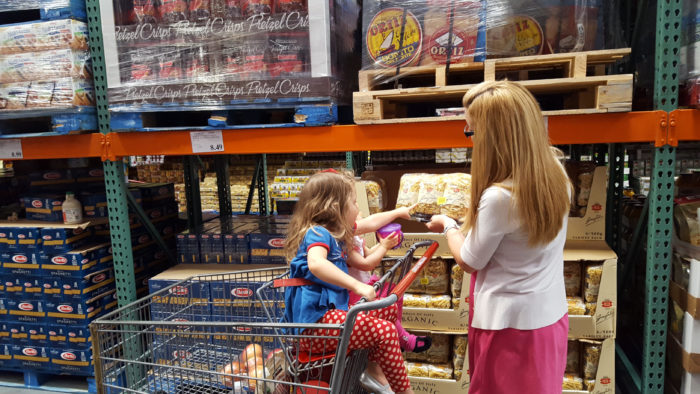Have you observed the mother in the grocery store talking non-stop to her infant as she traverses the isles? She speaks as if the child has complete understanding for the items she is browsing through and the level of vocabulary she articulates. Some might question the sanity of this mother as she details the sights and sounds of the child’s surroundings. This is a mother who intuitively knows the value of purposeful interaction and will perhaps spend her parenting years providing constant conversation and instruction to her children, which I applaud.
Parent-child Interaction
Parent-child interaction is crucial in helping children connect meaning to the people, places, events, and objects in their world. Research reports that positive parent-child interaction that includes parents providing meaning to everyday encounters, and offering support and encouragement, fosters academic success. Interaction and conversation helps develop critical thinking and worldview. It is through questions and discussion that children sharpen their ability to compare and contrast, and learn to understand and evaluate the ideas and beliefs of their family and culture.
Become a "Pointer Outer"
Parents, who are purposeful in teaching their children, take opportunities to talk about and find meaning in the things they encounter together. These parents, like the mother in the grocery store, are “pointer-outers”, pointing out and describing new objects or ideas to their children. Purposeful interaction is illustrated by a parent pointing out a fire hydrant on a walk with a toddler and describing how that object is connected to the red truck and siren, seen and heard in traffic.  When parenting is passive rather than purposeful, that fire hydrant goes unnoticed by the child, and a learning opportunity and means for making sense of that little corner of their world is lost. A new vegetable at the market or the mechanics under the hood of the car become learning opportunities. These little things have meaning. While not fully understood at two or politics at ten, the interaction does teach children that the things around them are connected in meaningful ways and helps children construct a framework for understanding the world.
When parenting is passive rather than purposeful, that fire hydrant goes unnoticed by the child, and a learning opportunity and means for making sense of that little corner of their world is lost. A new vegetable at the market or the mechanics under the hood of the car become learning opportunities. These little things have meaning. While not fully understood at two or politics at ten, the interaction does teach children that the things around them are connected in meaningful ways and helps children construct a framework for understanding the world.
Finding meaning in the world is the essence of education. Purposeful interactions are central to learning. When children are exposed to this kind of interaction, learning becomes an enjoyable part of daily life.
It’s never too early or too late to become a “pointer-outer”, helping your children make connections and find meaning in the world around them. So take a walk with your children this month, visit a museum, or even change the tire on the car together. Be purposeful in teaching your children about the world they interact with every day. Connect meaning to the things you encounter. In the process, you will enjoy learning and will grow together in your understanding of the marvelous world God created.
I'd love to hear what you "pointed out" this week for your children and how you made meaningful connections. Share it below.

